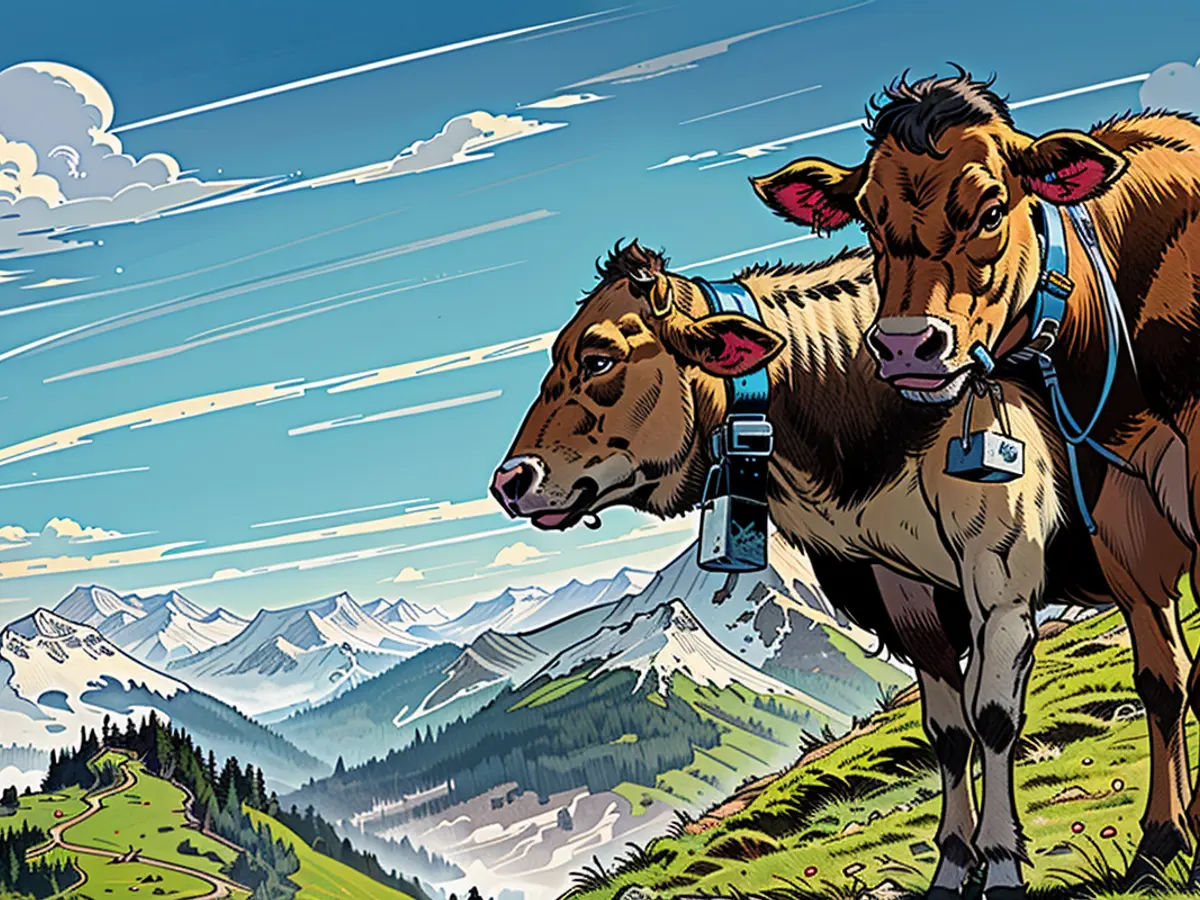Is it a cultural custom or a source of disruption? - A Swiss alpine hamlet determines the destiny of cowbells.
Several thousand years ago, the sound of cattle grazing on the Swiss meadows with bells around their necks became synonymous with the country's idyllic landscape, just like cheese, chocolate, and the mountains. However, not everyone finds the sound of cowbells comforting. A clash arose in Aarwangen, located in the canton of Bern, as the town added more residents, bringing newcomers who weren't fond of the cattle's bells.
Last year, two couples moved into Aarwangen and complained about the disturbance caused by the 15 or so cows' bells ringing at night. It kept them awake, so they petitioned for the cows to stop wearing bells during the dark hours. "This conflict symbolizes the urban-rural divide, where some people desire the hustle and bustle of city life while others embrace the soothing sounds of nature," stated the municipality's president, Niklaus Lundsgaard-Hansen, in an interview with the Swiss Radio and Television Corporation.
Cowbell fanatics step forward
The locals saw this as an attack on their culture and traditions. As a response, an initiative was launched to "protect" the bell ringing not only for churches but also for the cows. Known as the "Cowbell Initiative," it's aimed at reconciling the age-old bells with the modern need for sleep and tranquility.
The initiative swiftly acquired more than the required 319 signatures, amassing nearly 1,100 supporters. The town meeting is scheduled for June 17 to vote on the "Cowbell Regulations," according to Swiss media reports. "Swiss history contains our bell-tower chimes and cowbells, they form part of the country's identity," said Andreas Baumann, one of the initiators, during his interview with the Swiss Broadcasting Corporation SRF.
Dispute on the bovine bells might get a resolution on June 17th
On December 17, the town meeting proposal was submitted. Since then, a regulatory framework was developed, and now it's up for discussion. In the draft, Aarwangen's municipality acknowledges its tradition as a rural village with bell ringing during the day and night while considering residents' well-being. They also plan to inform newcomers of the town's history with a dedicated complaints desk. If the proposal is accepted, it will take effect on August 1.
During the submission process, the committee proposed ways to address noise issues like installing soundproof windows or noise barriers. However, Lundsgaard-Hansen added, "We don't want to regulate everything to a fine point."
In Switzerland, where cows and cowbells are as hallmark as cheese and chocolate, there is no consensus on the impact of the bell sound. The country once saw lawsuits about the bell ringing in Aarwangen, Basel, and Zurich but resulted in different verdicts. Cowbells are no longer used for tracking cattle in the pastures—GPS trackers have replaced them. However, many still value the cowbells as icons of Swiss life.
The UNESCO recognized the Almauftrieb—a centuries-old tradition consisting of driving cattle to the high pastures—as an intangible cultural heritage. Despite concerns about the noise and animal welfare, cowbells may remain an irreplaceable symbol of the idyllic Swiss countryside.
Aarwangen's town meeting is due to make a decision, but if the outcome is negative, the 15 cows would need to shed their nighttime bells if found to be over the legal noise limit.

Read also:
The "Cowbell Initiative" aimed to preserve the traditional cowbell ringing in Aarwangen, seeing it as a significant part of Swiss culture and identity, mentioned by Andreas Baumann. Switzerland, known for its iconic cowbells, continues to grapple with the balance between tradition and modern living, as evidenced by the controversy in Aarwangen.







